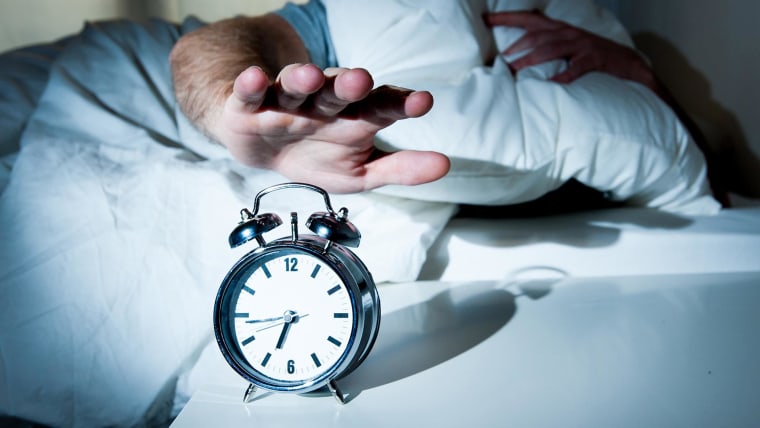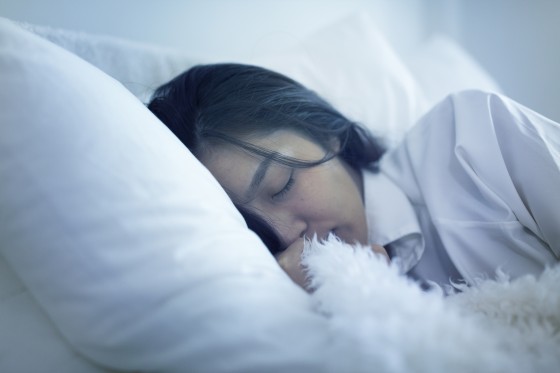The days are shorter, the temperature is dropping, and just like so many other animals in the wild kingdom, we humans can easily find ourselves possessed with the urge to hunker down and hibernate. So why are we suddenly quicker to find contentment in Netflix and baked goods than in socializing, just when socializing is most expected of us?
Ravi Shah, M.D., assistant professor of Psychiatry and medical director, Psychiatry Faculty Practice Organization at the Columbia University Medical Center, says one of the reasons our FOMO quickly devolves into FOGO is how the lack of daylight messes with our circadian rhythms.
“It helps to look toward people with seasonal affective disorder (SAD) for the answers,” says Shah. “The most common time SAD begins to hit is right around daylight savings. The amount of light starts to drop significantly a few weeks before, and some people start to feel it then, while others will feel it a few weeks after. That extra hour in darkness just makes it worse. Even if you don’t have SAD or a depressive history, some people can just feel mildly lethargic or tired while this is happening. There’s a clinical word for it, anhedonia, which means a lack of interest in pleasure.”
Mind you, this is also when the holiday season and all its revelry is in full swing, which complicates things. “Though people can feel lethargic, they still also feel like they’re supposed to be out at holiday parties, and shopping, and getting ready to be social,” says Shah. “This is tricky for people. It can be something of an ego blow to understand that your inner feelings aren’t going with what’s expected of you.”
It's not you, it's your circadian rhythms
Shah says this might have to do with a disruption in your circadian rhythms, which affect your whole body’s natural timing. “Natural daylight decreases, which affects melatonin secretion. Melatonin is a natural hormone secreted by pineal gland in brain,” Shah explains. “During the evening, there’s a melatonin peak which tells you it’s time for bed. If all that shifts earlier on you, you’re going to get this signal it’s time to wind down at 5 or 6 o’clock, which is too early in society. And if a party doesn’t start until 8 pm, you can see why people might not want to go.”

How to resist the instinct to hunker down
So, even with the skies working against us, how are we supposed to rally? John Sharp, M.D., psychiatrist on faculty at Harvard Medical School and the David Geffen School of Medicine at UCLA, and author of "The Emotional Calendar: Understanding Seasonal Influences and Milestones to Become Happier, More Fulfilled, and in Control of Your Life,” says we just have to push through it. He recommends making evening plans and committing to them in advance — be it the gym, errands, book club or a rendezvous with friends — instead of heading home to hibernate. “If you do go home, make it cozy and enjoy a homey activity, such as cooking, reading, or watching something you enjoy,” says Sharp.
Besides, if we could just push through the initial reluctance to come out of our caves, Shah says we might change our minds. “We really push for the idea of behavioral activation — let’s get out and do the things that you normally would want to do, even if we aren’t feeling like it,” says Shah. “Often, if you get 15 minutes into it, your brain will remember you like to socialize or be with friends and family.”
And if that still doesn’t work, consider using a light lamp (the kind SAD folks sometimes use) for 20 minutes in the morning. “The data behind them is strong,” says Shah. “It works on your brain cells. If you were in a room asleep with the lights off and I walked in silently, you’d know why because you have photoreceptors on your eyelids. The light has an effect on your brain.”
Consider it a sun supplement until the days get longer.
NEXT: Running on empty? Try this daily routine to boost your energy
Want more tips like these? NBC News BETTER is obsessed with finding easier, healthier and smarter ways to live. Sign up for our newsletter and follow us on Facebook, Twitter and Instagram.


